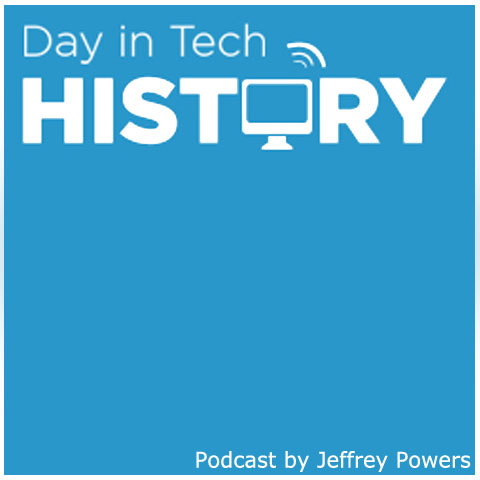1978
Gary Thuerk (actually Carl Gartley), a marketing representative of Digital Equipment Corporation (DEC), sent the first spam message to 393 users of ARPANET on the west coast of the United States. The e-mail is an invitation to a demonstration of DEC’s new Decsystem-20 computer. The message took several day to prepare, as all of the address had to be typed in manually, and the message was carefully composed. It illicits an immediate and negative reaction. Thuerk will receive a torrent of complaints and an official reprimand from the administrators of the government-run network.
1982
Walt Disney Productions files a suit against Williams Electronics for infringing Disney’s Tron trademark with the arcade video game Robotron: 2084.
1983
Mattel files a lawsuit against Atari, accusing it of luring away three employees who helped develop game cartridges compatible with Mattel’s Intellivision game system.
1984
Apple Computer announces that seventy thousand Macintosh computers have been shipped in the one hundred days since its announcement.
Dell Computer is founded in Austin, Texas.
1996
Suspected “Unabomber” Theodore Kaczynski is arrested at his Montana cabin. Kaczynski is held up by the media as a prime example of a “loner.” Journalist Anneli Rufus will later use this as an example of the media’s consistent, erroneous use of the term “loner” in her (excellent) book, Party of One: The Loner’s Manifesto.
1997
Garry Kasparov beats IBM’s Deep Blue in the first of six matches in what many consider the ultimate test of artificial intelligence. Kasparov will eventually loose the match along with the US$1.1 million purse to the IBM supercomputer, which he had previously claimed could never surpass a human’s ability to play chess. After losing the sixth and final game of the match, Kasparov will accuse IBM of building a machine specifically to beat him. Observers will later state that he was frustrated by Deep Blue’s quickness although they expected him to win with unconventional moves. The RS/6000 SP parallel processing computer can analyze 200 million chess positions per second.
1998
NetChannel, a web-enhanced television company, is discontinued, leaving nearly ten thousand subscribers without service. On Thursday, May 7, AOL will reveal plans to acquire NetChannel.
1999
IBM unveils a new generation of mainframe computers touting them to be the world’s highest-capacity business machines available. The G6 machines are IBM’s sixth distinct generation of mainframes since 1994. Officially called the S/390 Parallel Enterprise Server – Sixth Generation, these new systems can process 1,600 Million Instructions Per Second (MIPS). The benchmark clocks in at fifty percent additional data-handling capacity over IBM’s previous G5 line. Shipments are set to begin Friday, May 28, a full month ahead of original plans.
2000
In the case of United States v. Microsoft, Microsoft is ruled to have violated United States antitrust laws by keeping “an oppressive thumb” on its competitors.
Datapoint, the company that commissioned the Intel 8008 microprocessor, declares Chapter 11 bankruptcy.
The Love Letter computer virus infects personal computers around the world within six hours. The virus spreads through e-mail, enticing victims to open the message with the subject line, “I love you”. A total of fifty-five million computers encounter the virus, and about 2.5 to 3 million will become infected. The final estimated cost of system downtime is a later estimated at US$8.7 billion. It is thought to be the fastest-moving and most widespread virus ever seen.
Metallica drummer Lars Ulrich and the band’s attorney produce a list of more than 335,000 Internet users who have allegedly shared the band’s songs on Napster.
A new company, SuperLetter.com Inc. announces that, beginning in May, internet users will be able to send mail to any physical address in the world from a PC – for less than the cost of express mail service. The company’s motto is “You Send E-Mail – We Deliver Real-Mail – Around the Globe!”
2001
The sport of Geocaching begins when the GPS coordinates of the first geocache are posted to Usenet. Geocaching is an outdoor treasure-hunting game in which the participants use a Global Positioning System (GPS) receiver or other navigational techniques to find containers referred to as “geocaches” or simply “caches” before other participants.
2002
Barry Erickson, of the piracy group DrinkOrDie, pleads guilty to one felony count of conspiracy to commit criminal copyright infringement as a result of Operation Buccaneer. DrinkOrDie has long been one of the best known sources for pirated software on the internet, particularly in IRC channels. He will be sentenced to thirty-three months in prison followed by two years of supervised release and a US$5,000 fine.
Hewlett-Packard and Compaq complete their merger.
2006
In a press release, the Recording Industry Association of America (RIAA) labels the cities of Atlanta, Austin, Chicago, Dallas, Houston, Los Angeles, Miami, New York, Philadelphia, Providence, San Diego, and San Francisco, “Piracy Cities”. It declares them “hot spots” of copyright infringement, with large numbers of individuals engaged in piracy, from the manufacturer level all the way down to the point of retail sale.
Skypecasts were launched. Skypecasts are live, moderated conversations allowing groups of up to one hundred people to converse, moderated by the “host” who is able to mute, eject or pass the virtual microphone to participants when they wish to speak. Skypecasts did not support chat windows to share text information (such as URLs) with participants. Skype would discontinue the project on September 1st 2008.
2012
Yahoo! CEO Scott Thompson was found to have misrepresented himself on his resume. This would lead to his resignation on May 13
